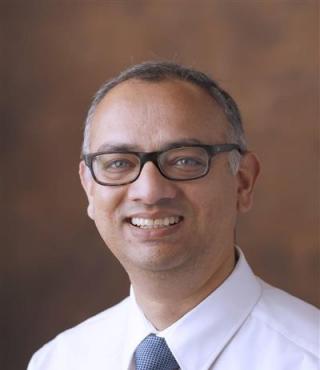Eosinophilic gastrointestinal disorders (EGIDs), such as eosinophilic esophagitis, eosinophilic gastritis, and eosinophilic colitis are a relatively rare group of disorders, and an area of medicine where there is limited research. As a result, patients and caregivers of those affected by EGIDs may experience many difficult, unmet medical and emotional challenges, according to research published in Clinics and Research in Hepatology and Gastroenterology.
This collaborative study was led by Girish Hiremath, M.D., a pediatric gastroenterologist at Monroe Carell Jr. Children’s Hospital at Vanderbilt, and colleagues from the Consortium of Eosinophilic Gastrointestinal Researchers. This consortium is funded by the National Institutes of Health and is part of the Rare Diseases Clinical Research Network. The study uncovered significant barriers or morbidities in every dimension queried in the survey.
“This study is an important first step in addressing the gap in medical and emotional support for patients and caregivers of those affected by EGIDs,” said Hiremath.
Surveying Families on EGID Impact
The study used web-based platforms administered by patient advocacy groups, including the American Partnership for Eosinophilic Diseases (APFED), Campaign Urging Research for Eosinophilic Diseases (CURED), and the Eosinophilic Family Coalition (EFC), to engage a large and diverse group of participants.
In all, 271 adult caregivers of pediatric EGID patients, and 90 adult EGID patients participated in the online survey. The survey focused on four dimensions: medical challenges, health care barriers, emotional impact, and social factors – all of which were identified by the community members as important to the EGID community.
“This study is an important first step in addressing the gap in medical and emotional support for patients and caregivers of those affected by EGIDs.”
Difficult, Unmet Challenges
The survey participants identified numerous medical challenges. More than half indicated that they had to transfer their medical care to a provider knowledgeable in EGIDs. Only 19 percent indicated that repeated endoscopies to assess treatment response were convenient. They also identified significant health care barriers, with 64 percent of the participants reporting difficulties accessing dietitians or nutritionists who they felt understood the challenges faced by EGID patients.
The emotional impact of treatment was also highly significant, with 64 percent saying that out-of-pocket costs had placed significant stress on them and 75 percent reporting that EGID had placed an emotional burden on family members and caregivers. As a result, 51 percent felt the need to seek professional help to manage stress; 41 percent had actually sought professional help.
When queried on social dimensions of EGID care, only 5 percent said there was adequate awareness about EGIDs in schools and that teachers were empathetic to their needs. Only 6 percent said the same about workplaces and employers. Over 60 percent had experienced food-related discrimination due to their dietary restrictions to manage EGIDs.
Moving from Awareness to Solutions
“These patients and their families are facing day-to-day struggles due to the lack of knowledge and support for patients with EGIDs,” Hiremath said. “This is the first study to systematically investigate the unmet needs and perceptions of currently available EGID care, and to begin to analyze how they impact the EGID community.”
The results of this study provide valuable insight for informing how providers and community groups like schools can better support children with an EGID, and provides direction for future EGID research.






